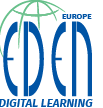
- This event has passed.
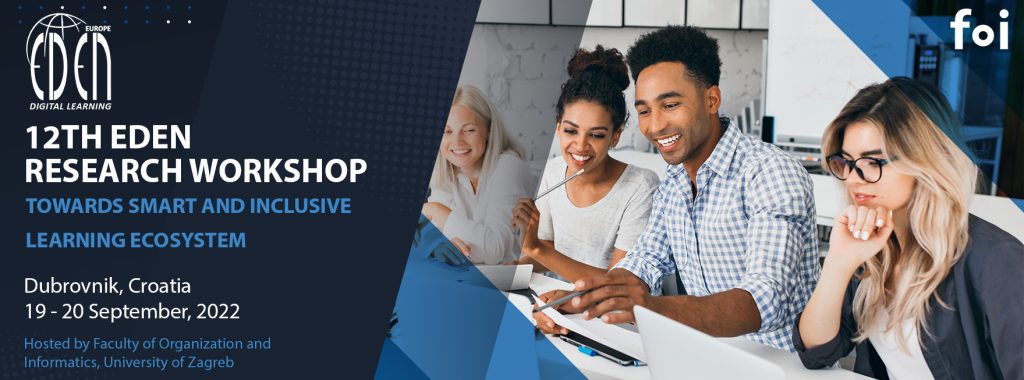
2022 Dubrovnik
September 19, 2022 @ 08:00 – September 20, 2022 @ 17:00
Workshop Scope

EDEN’s 2022 Research Workshop entitled “Towards smart and inclusive learning ecosystem” focuses on improved learning environments that drive the digital transformation of educational institutions. COVID-19 has accelerated the shift to blended or fully online learning environments, enforcing educational institutions to embrace technology and offer their students an online or at least blended learning experience. A large amount of data accessible through different learning environments has been analysed and used to drive future strategies of education. This workshop aims to explore the consequences of emergency remote teaching and learning as well as to tackle the new approaches in creating learning environments that should be smarter, more inclusive, involve emerging technologies that will boost digital skills of students and bring them more personalised experience.
Workshop Themes
- Digital transformation of educational institutions: digital strategies, quality assurance, models and frameworks, supporting teachers and learners
- Trends and issues in education: emergency remote teaching and learning, development of teachers’ and students’ 21st century skills, diversity issues, digital divide, innovative assessment approaches
- High-performing personalized learning environments: using big data, learning analytics, artificial intelligence, wearables, and student modelling to create smart and inclusive learning environments for blended and online learning
- Learning strategies for smart learning environments: activity driven design, instructional design, learning design, gamification, immediate and personalized feedback starting from an early age
- Emerging technologies in education: flipped classroom, augmented reality, virtual reality, artificial intelligence, BYOD, new platforms for skills development
Partner

Established in 1962, the Faculty of Organization and Informatics University of Zagreb is an institution that reaches back more than half a century, which is a comparably long tradition when modern technologies studies are concerned. Over the decades, the Faculty has been providing education to future experts in the field of information sciences and technologies, economics, organization, communication and other related fields.
Important Dates
Submission deadline – August 15, 2022
Notification of acceptance – August 30, 2022
Early bird registration – August 15, 2022
Registration deadline – September 7, 2022
Conference dates – September 19-20, 2022
All papers and posters should be submitted through the Conference Management System.
Keynotes
Ilona Buchem
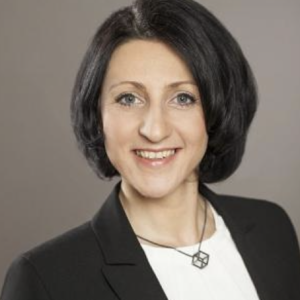
Dr. Ilona Buchem is Professor for Communication and Media at Berlin University of Applied Sciences Berlin, Faculty of Economics and Social Sciences, She teaches courses in bachelor’s and master’s programs, both on campus and online, including Digital Business (BSc.) and Media Informatics (MSc.). As the Head of the Communications Lab, Ilona Buchem leads a number of projects on the application of humanoid robots as learning and teaching assistants in the context of higher education. Ilona Buchem is an author of many publications in the field of Technology-Enhanced Learning (TEL) and has been involved in many national and international TEL projects, dedicated to topics such as Open Badges, Wearables, Virtual Agents, Gamification, Virtual Mobility, Open Education, Mobile Learning, E-Portfolios and Personal Learning Environments. She is the founder and one of the Chairs of the Special Interest Group on Wearable Enhanced Learning (WELL) at the European Association for Technology Enhanced Learning (EATEL). Ilona Buchem has been actively involved in some of the leading TEL organizations in Europe, including the European Association for Technology Enhanced Learning (EATEL), the European Distance and E-Learning Network (EDEN) and the European Association of Distance Teaching Universities (EADTU).
Topic: Designing Interaction with Humanoid Robots as Teaching and Learning Assistants
Abstract: Humanoid robots, such as Nao, Pepper, iCub, QT, Navel and many others have just recently started to be used in higher education. Currently available humanoid robots provide multimodal interfaces which allow design for human-robot interaction through speech, touch, gestures, face recognition and eye gaze. Current research on applying humanoid robots in education as part of the field of robot assisted learning provides some promising evidence for enjoyable learning experiences and enhanced learning outcomes of diverse groups of learners. This talk will provide an overview of how humanoid robots are applied as teaching and learning assistants including examples from own research at the Communication Lab. Specifically, this talk will focus on the design process and design options for human-robot interaction in different application scenarios. The talk will also address some limitations and challenges inherent to the currently available humanoid robotic platforms. The talk will end with an interactive part in the form of crowd-creation, in which the audience will participate in the joint creation of a playful human-robot interaction
Bart Rienties

Dr. Bart Rienties is Professor of Learning Analytics and programme lead of the learning analytics and learning design research programme at the Institute of Educational Technology at the Open University UK. He leads a group of academics who provide university-wide learning analytics and learning design solutions and conduct evidence-based research of how students and professionals learn. His primary research interests are focussed on Learning Analytics, Professional Development, and the role of motivation in learning. Furthermore, Bart is interested in broader internationalisation aspects of higher education. He has successfully led a range of institutional/national/European projects, and has received a range of awards for his educational innovation projects. He has published over 285 academic outputs, and is the 2nd most published author on Networks in Education in period 1969-2020 (Saqr et al. 2022), the 3rd most cited author on higher education internationalisation in Asia in the period 2013-2018 (Can & Hou, 2021), the 4th most cited author and contributor in Learning Analytics in the period 2011-2018 (Adeniji, 2019), the 5th most published author on internationalisation in the period 1900-2018 (Jing et al. 2020) and the 7th most published author on social network analysis in social sciences in the period 1999-2018 (Su et al. 2020), and the 14th most published author on educational technology in the period 2015-2018 (West & Bodily, 2020).
Topic: How can you use learning analytics in your own research and practice: an introductory perspective
While many “brick-and-mortar” universities had to rapidly shift online provision during the pandemic, a range of online and distance learning universities have been teaching in blended and online formats for years. Obviously with every single click potentially interesting data might become available about how and perhaps why learners are engaging with learning materials and activities. A blossoming field of learning analytics has emerged since 2011 trying to make sense of these increased data flows. The Open University UK (OU) has been trailblazing innovative learning across the globe for 50 years. Since 2014 the OU has gradually moved from small-scale experimentation to large-scale adoption of learning analytics throughout all 400+ modules and qualifications available within the OU for its 170.000+ online learners.
This keynote will explore how you as researcher, practitioner, and/or policy maker could start to use learning analytics to better understand your educational practice. Using examples from small-scale experiments and large-scale adoptions of predictive learning analytics I will explore together with EDEN RW participants which approaches and methods in learning analytics might be useful to consider. No prior knowledge or experience of learning analytics is expected, and join me on a journey of how you could potentially use data from your learners and teachers to further improve and finetune your blended and online provision.
Contact us
If you have any queries, or for further information, please email eden-dubrovnik@foi.unizg.hr
Submission categories
Paper presentations – Presentation of research results, reviews of existing results (including empirical or theoretical studies, policy reviews, comprehensive case studies), and project results that are in a conclusive phase.
Posters – Work-in-progress, initial research results, projects in early stages of development, and case studies. Poster presentations will be themed in related sessions.
All papers and posters should be submitted through the Conference Management System.
Selection
Submissions undergo a double-blind peer-review and are evaluated based primarily on originality, significance and quality of contribution, and relevance to workshop themes. Unique and innovative contributions that do not directly align with the workshop themes will also be considered if they are believed to bring benefit to workshop participants.
Publication
Accepted presentations (including posters) will be published in the Conference Proceedings. Registered delegates will have electronic access to the full version of contributions prior to the workshop. Publications will be openly accessible after the Workshop.
Selected authors will be invited to submit their work for a special track on Education and Learning Analytics at CECIIS 2022 conference that will be held in Dubrovnik, September 21-23, 2022. CECIIS 2022 Proceedings are indexed in Web of Science, INSPEC, Proquest, DOAJ and EBSCO.
Selected authors will be invited also to submit to a special issue of EURODL.
Acknowledgement of quality and excellence
The tradition of awarding the EDEN Best Research Paper will be continued.
Submission Guidelines

Paper proposals should not exceed six A4 pages, including the 10-15 line summary, figures and references, use the paper submission template, download here.

Poster submissions should not exceed four A4 pages. Authors of posters accepted for presentation will be required to prepare a max. A0 (1189mm*841mm) size poster for display. Use the poster submission template, download here.
Important dates
Submission deadline – August 30, 2022
Notification of acceptance – September 7, 2022
Early bird registration – August 15, 2022
Registration deadline – September 12, 2022
Conference dates – September 19-20, 2022
Contact us
If you have any queries, or for further information, please email eden-dubrovnik@foi.unizg.hr
Monday, September 19th 2022
9:00 – 10:00 Registration
Registration
HYBRID / ROOM DUBROVNIK 10:00 – 10:30 Welcome and opening session
Chair: Sandra Kučina Softić
– EDEN DLE President Josep M. Duart
– Welcome on behalf of the host institution – University of Dubrovnik, Vice-Rector. Assoc. Prof. Sanja Žaja Vrbica
– Welcome on behalf of the host – Faculty of Organisation and Informatics University of Zagreb, Assoc. Prof. Igor Balaban, vice-dean for science, international cooperation and projects
HYBRID 10:30 – 11:30 Keynote: Designing Interaction with Humanoid Robots as Teaching and Learning Assistants, Prof. Ilona Buchem
Chair: Josep M. Duart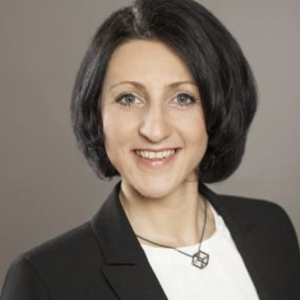 Ilona Buchem
Ilona Buchem
This emerging topic on robots in education by an award winning speaker will provide an overview of how humanoid robots are applied as teaching and learning assistants including examples from our own research at the Communication Lab. Specifically, the focus will be on the design process and design options for human-robot interaction in different application scenarios. We will end with an interactive part in the form of crowd-creation, in which the audience will participate in the joint creation of a playful human-robot interaction
11:30 – 12:30 Lunch break
Lunch break
12:30 – 14:00 Research Paper Sessions:
Digital transformation of educational institutions (ROOM DUBROVNIK)
Moderator: Diana Andone
– Developing a High Performance Digital Education Ecosystem for HE
Airina Volungevičienė, Marj Brown, Michael Gaebel, Alison Morrisroe, Rasa Greenspon
– Analysing Digital Tools for Technical Universities
Diana Andone, Andrei Ternauciuc, Patrick Wall, Manuel Salvador Araujo, Rosa Maria Arnaldo
– An Integrative Model of Instructors’ ICT use in Higher Education in Developing Countries
Bekalu Ferede, Jan Elen, Wim Van Petegem, Adula Bekele Hunde, Katie Goeman
– Meaningful Digital Transformation: The Role of Digital Maturity and Educational Leadership in Supporting Transformative, Inclusive, Visionary, Effective and Accountable Education
EDEN Best Research Paper candidate / Dragana Kupres, Nati Cabrera Lanzo, Albert Sangra Morer
– Digitools Project – Users Perspective on the Current State of Digital Education
Mihaela Banek Zorica
Trends and issues in education (ROOM VARAŽDIN)
Moderator: Alfredo Soeiro
– Harnessing the Synergies of the EDEN Community: The EDEN Mentoring Programme
Deborah Arnold, Lisa-Marie Blaschke, Don Olcott Jr.
– Exploring Student Perceptions of Employability Skills Development Using Radar Charts in First Year Science
Christopher Hutton, Fiona Jane Aiken
– Improving Student Success for Global Majority and Low Socio-Economic Status Students Through Additional Synchronous Support and Information Embedded on a Distance Learning Access Module
Hannah Lavery, Steve Padley
– Designing an Assessment Model of Entrepreneurship Competence for the Promotion of Sustainability in Compulsory and Post-Compulsory Education
EDEN Best Research Paper Award Winner / Estel Paloma Cisa, Guardia Lourdes, Buil Fabregà Màrian
– Eu3d – Boosting Digital Skills and Competences of Third Sector Organisations and Social Enterprises
Alfredo Soeiro, Ademar Aguiar, Carol Jacklin-Jarvis, Tot Foster
14:00 – 14:30 Coffee break / Poster session
– Supporting Work Experience in the New Normal: Virtual Internships post Covid-19 (Diane Butler, Kristen Reid, Andrew Potter, Catherine Comfort)
– The Case for a Blended, Technologically Enhanced Learning Ecosystem in Europe (Ellen Gunning)
– Inclusive Teaching Strategies for Meaningful Relationships Between Schools and Museums. Data from a Formative Museum Evaluation (Eliana Maria Torre)
– Using Digital Educational Materials for Active Learning in Schools (Ivana Ružić, Igor Balaban)
– Transparent Assessment for Online Learning by Digitally Competent Professors (Airina Volungevičienė, Sandra Kučina, Josep M. Duart, Raimund Hudak, António Moreira, Marta Mamet-Michalkiewicz, Carlos Madrid Gari)
– Problems Related to E-Learning Courses Aimed at Acquiring the 4.2 Level Competencies for the Police Officer Occupation (Damir Šneperger)
14:30 – 15:50 ROOM DUBROVNIK – Emerging best practices in research methods
Chair: Sandra Kučina Softić
In this session our distinguished researchers will highlight some of the emerging research methods and approaches they use in their research practice. Participants will be split into groups to collaboratively work and showcase some of the topics related to their own interests such as working with large datasets, matching methods to research questions, validation of surveys, the role of case studies, etc. In the end participants will be able to ask questions and engage in discussion with panellists. This cutting-edge section is intended for PhD students as well as other researchers who would like to further explore their research methods and share their knowledge with others.
HYBRID 16:00 – 17:30 Parallel sessions: Online session (ROOM VARAŽDIN) / Fellows Council (upon invitation) (ROOM ZAGREB)
Session presentations Moderator: Helga Dorner
– Travelling Culture: Define, Implement, Enrich and Disseminate the Digital Cultural Heritage. The “Digitxl Project” Case Study.(Tiziana Pasciuto, Riccardo Albertoni, Roberta Maggi, Maria Teresa Artese, Isabella Gagliardi, Maurizio Gentilini)
– Personalized Virtual Reality Experience Within Museum Education Context: The Inclusive Memory Web App EDEN Best Research Paper candidate (Antonella Poce, Carlo De Medio, Mara Valente, Maria Rosaria Re)
– Digital Storytelling for Digital Skills Development. A Pilot Experience with In-training Educators (Maria Rosaria Re)
– Quality Distance Education in the Conditions of War (Natalia Grushko, Roman Hrushko)
– Skills for Prosperity Kenya: Adapting OER for More Sustainable Online Course Development (poster) (Beck Pitt, Fereshte Goshtasbpour, Simon Cross, Rebecca Ferguson, Denise Whitelock)
– Using Learning Analytics During a Virtual Class (Fred Dixon)
19:00 – 22:00 Dinner Akademis Akademia (UI. Marka Marojice 2b) Best Research Paper Award in cooperation with The UNESCO Chair in Education and Technology for Social Change
EDEN Best Research Paper Award competition is based on evaluation results on submission papers presented to the Research Workshop that follow five standard evaluation criteria:
– The paper deals with a research question.
– Rigorous examination/research methods are applied.
– Findings, results and outcomes are convincingly presented and critically examined.
– Conclusions are thoroughly discussed (including applicability, transferability, and further research.
– Literature is reviewed against state of the art.
The composition of the honourable jury for the EDEN Best Research Paper Award was composed in cooperation with The UNESCO Chair in Education and Technology for Social Change:
– Ebba Ossiannilsson, (Chair of the Jury), Professor, Dr. Swedish Association for Open, Flexible and Distance Education, International Council for Open and Distance Education, Board and ICDE OER Advocacy Committee, Chair
– Igor Balaban, Assoc. Professor, University of Zagreb, Faculty of Organization and Informatics, Croatia, Vice-dean for science, international cooperation and projects, Head of Laboratory for advanced technologies in education
– Lina Morgado, Assoc. Professor from Department of Education and Distance Learning, Universidade Aberta, Head of Laboratory of Distance Education and eLearning (LE@D) and Director of Master in eLearning Pedagogy (mPeL) at the same university
Tuesday, September 20th 2022
HYBRID / ROOM DUBROVNIK 9:15 – 10:15 Keynote: How can you use learning analytics in your own research and practice: an introductory perspective, Prof. Bart Rienties
Chair: Wim Van Petegem Bart Rienties
Bart Rienties
Join this keynote and meet the 4th most cited author and contributor in Learning Analytics in the period 2011-2018, and one of the most published authors on educational technology in the same period who will explore how you as researcher, practitioner, and/or policy maker could start to use learning analytics to better understand your educational practice. Using examples from small-scale experiments and large-scale adoptions of predictive learning analytics I will explore together with EDEN RW participants which approaches and methods in learning analytics might be useful to consider. No prior knowledge or experience of learning analytics is expected, and join me on a journey of how you could potentially use data from your learners and teachers to further improve and finetune your blended and online provision
HYBRID / ROOM DUBROVNIK / ROOM VARAŽDIN 10:30 – 12:00 Research Paper Sessions:
Emerging technologies in education and Learning strategies for smart learning environments (ROOM DUBROVNIK)
Moderator: Deborah Arnold
– Implementing Peer Assessment in a University Context Through the Use of a Virtual Platform: A Pilot Experience
Mara Valente
– The Adoption Factors of Educational Humanoid Robots: The Case of Croatian Secondary School Teachers
Snježana Babić, Monika Lenić, Darko Etinger
– She’s a Woman Who Understands: The Winnovators Project
Sonja D. Radenkovic, Vladan Devedzic, Mirjana Devedzic
– Hybrid System for Personalised Teaching: Moodle P
Carlo De Medio
– Immersive Learning and the Use of a Conversational AI Application: An Investigation of New Platforms for Skills Development and On-The-Job Training (online presentation)
Jonas Backelin
Trends and issues in education (ROOM VARAŽDIN)
Moderator: Vlad Mihaescu
– Creative and Cultural Entrepreneurship Curricula and Learning Framework
Vlad Mihaescu, Diana Andone, Nicolae Bibu, Mihail Lisetchi, Sabine Vareta-Pekarz, Anastasios Ntabizas, Adrian Solomon
– ABC Method for Online Course Design- from F2F to Online Workshop in Croatian Perspective
Sandra Kučina Softić, Tona Radobolja
– Development of Vocational Learning Scenarios with Application of Digitalised Resources in the Initial Vet Lessons
Genute Gedviliene
– The Psychological and Relational Dimensions of Teaching as Fundamental 21st-Century Educational Skills: A Perspective Article (online presentation)
Pierpaolo Limone, Benedetta Ragni, Giusi Antonia Toto
– Monitoring, Supporting and Engaging Students Based on the Evidence Generated by Digital Technologies (online presentation)
Giedre Tamoliune, Airina Volungeviciene, Elena Trepule
– Flipped Classroom for Activating Students in Online Classes
(online presentation)
Giedre Tamoliune, Estela Dauksiene
12:00 – 13:00 Lunch break
Lunch break
13:00 – 15:00 – ROOM DUBROVNIK – NAP Networking Sessions
Networking Sessions
15:00 – 15:30 Coffee break
Coffee break
15:30 – 16:00 – ROOM DUBROVNIK – Closing session
Chair: Igor Balaban
During the closing session, moderators of each section will present highlights of their session with some key takeaways. The announcement of the next EDEN Annual Conference – venue and dates.
- Denise Whitelock, EDEN DLE Vice-President for Research, UK
- Josep M. Duart, EDEN DLE President, Spain
- Airina Volungevičienė, Lithuania
- Sandra Kučina Softić, Croatia
- Helga Dorner, Hungary
- Alfredo Soeiro, Portugal
- Mart Laanpere, Estonia
- Antonella Poce, Italy
- Wim E.A. Van Petegem, Belgium
- Vlad Mihăescu, Romania
- Igor Balaban, Croatia
- Bojan Zugec, Croatia
- Goran Hajdin, Croatia
- Dijana Plantak Vukovac, Croatia
- Elena Trepule, Lithuania
Organising Committee:
- Josep M Duart, Spain
- Elena Trepule, Lithuania
- Carlos Madrid, Spain
- Evelina Grigule, Lithuania
- Gabija Kvieskaite, Lithuania
- Petra Grd, Croatia
- Igor Balaban, Croatia
- Ivana Fojs, Croatia
- Ena Barčić, Croatia
Workshop registration notes
Register for the workshop through the Events management system
Payment methods available: Bank transfer
Registration steps
1. Register to the system (https://events.foi.hr/register/)
2. After login, start the event registration process (https://events.foi.hr/event/public/show/7145?_changeLocale=en)
3. After the first step, the participation fee needs to be paid.
Payments details and sales conditions:
Beneficiary: EDEN Digital Learning Europe MTU
Account nr: EE752200221078252481
Name of the bank: Swedbank AS
Address of the bank: Liivalaia 8, 15040 Tallinn, Estonia
SWIFT/BIC: HABAEE2X
Payment comments/purpose: Dubrovnik RW, name surname
4. After paying the fee, you will receive an email with payment confirmation (a few days) and a link to continue the registration process.
5. Fill in the registration form and finish the registration process.
Please note that your participation is approved only after the payment of the participation fee.
If you have a need for the invoice please contact us at evelina.grigule@vdu.lt
Registration fees
Regular registration* – 400 EUR
Early bird registration* – 350 EUR
FREE Participation for Ukranian Researchers – During the registration process apply the following coupon code: eden-rw-ukr-2022
Gala dinner – 80 EUR
Regular registration for participants from Croatia – 350 EUR**
*For online participation (keynote speeches and one online section) fees are 50% reduced
** In order to register as a participant from Croatia, please select the “Onsite participation for Croatian participants” and enter the coupon code (if you do not have the coupon code, please contact eden-dubrovnik@foi.unizg.hr)
Contact us
If you have any queries, or for further information, please email eden-dubrovnik@foi.unizg.hr
About Dubrovnik


Dubrovnik was founded in the 7th century and until today became a magical puzzle consisting of history, culture, entertainment, sports, shopping, excursions and gastronomy. One can feel and experience with all senses its title of one of the world’s most beautiful cities and “a living museum within the modern present”, being the perfect background for numerous cultural, professional and scientific events. It was the only city-state on the entire Croatian coast from the 14th to the 19th century. Seafaring, harbouring and trade, together with the wise international policy and skilful diplomacy brought economic and cultural prosperity for centuries to the free city–state and brought in world’s finest builders and artists, which contributed to its richness and diversity.
University of Dubrovnik with map
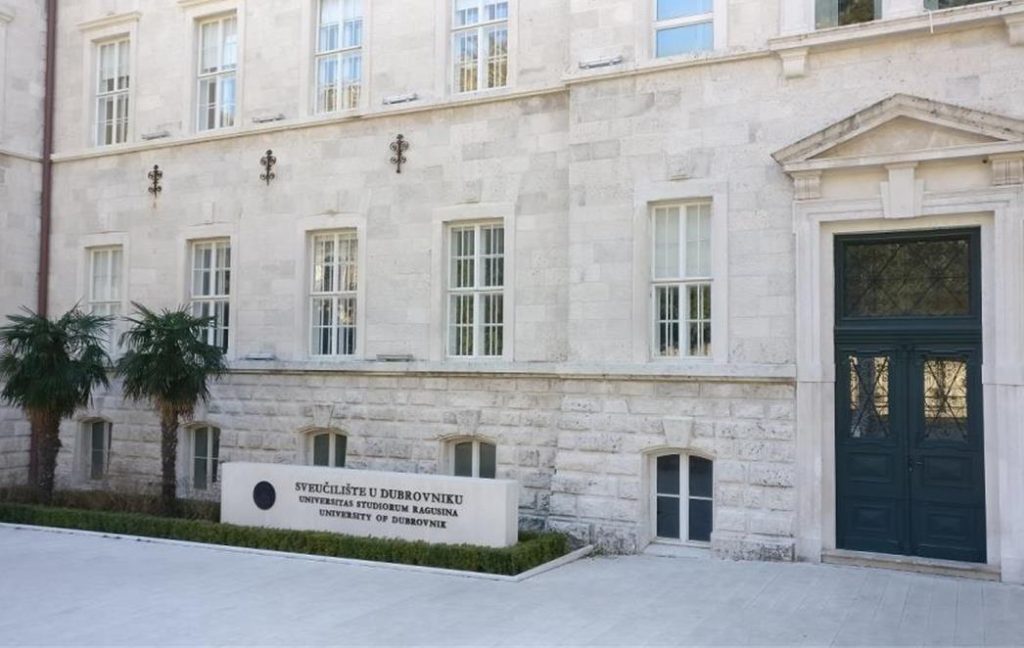
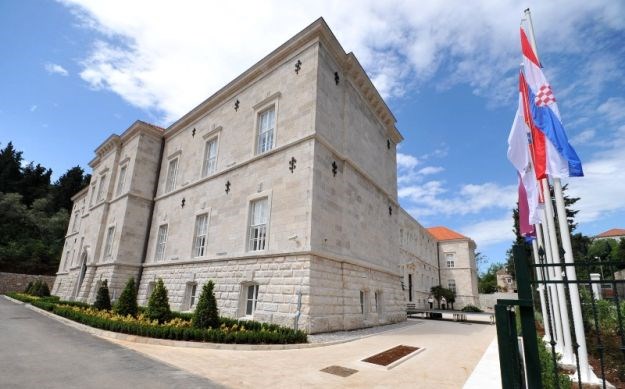
The conference venue is the University of Dubrovnik. The University of Dubrovnik, as it is today, was founded in 2003. Although one of the youngest, the University of Dubrovnik is, according to its studies, structure and technical equipment, a very modern higher education institution. The venue is just a short walk away from Dubrovnik Old Town and Walls of Dubrovnik.
Recommendations for accomodations
Akademis “Academia” student dormitory (available for two nights, from September 18 to September 20)
